Table of Contents
The ongoing conflict between Israel and Iran has escalated dramatically over the past few days, raising alarms across the globe about the potential long-term consequences of this volatile situation. The situation has reached a critical point, with both nations engaged in a dangerous back-and-forth of military strikes, diplomatic rhetoric, and strategic maneuvering. French President Emmanuel Macron recently called for the United States to take the lead in reviving diplomatic efforts in the region, warning that any attempt to force the overthrow of Iran’s government could lead to chaos.
This article explores the latest developments in the Israel-Iran conflict, the international response, and the broader implications for global security and diplomacy.
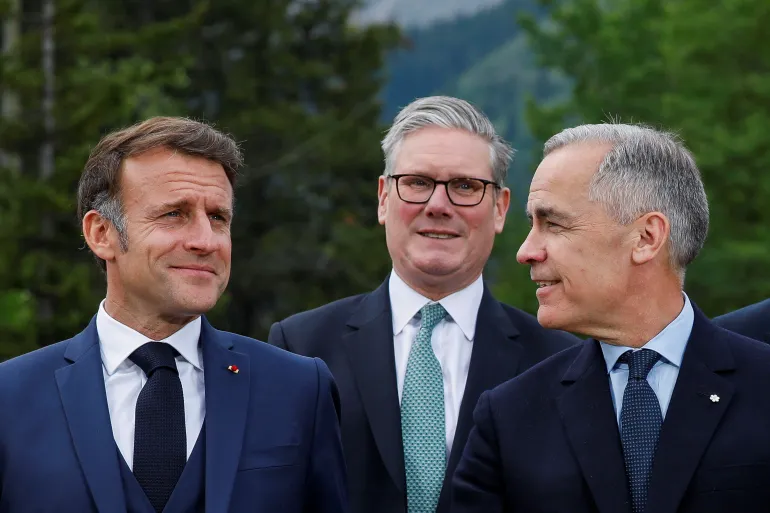
Macron Urges the U.S. to Lead Diplomatic Efforts
At the recent G7 summit in Canada, French President Emmanuel Macron emphasized the critical role of the United States in restarting diplomatic negotiations with Iran. He expressed concern that escalating military tensions could plunge the Middle East into further chaos. “We need the United States of America to bring everyone back around the table,” Macron stated, stressing the importance of diplomatic engagement over military intervention.
Macron was clear in his warning: using military strikes to change the regime in Tehran would only result in catastrophic consequences. The French president reminded the international community of the lessons learned from past U.S.-led wars in Iraq and Libya. He pointed out that those interventions, which were meant to achieve stability, instead led to prolonged conflict and instability. “Does anyone think that what was done in Iraq in 2003 was a good idea? Does anyone think that what was done in Libya over the next decade was a good idea? No!” Macron said, urging world leaders to avoid repeating these mistakes.
Despite the urgency of the situation, Macron remains adamant that diplomatic negotiations are the best way forward, particularly regarding the Iranian nuclear and ballistic programs. The message is clear: engaging in dialogue is the key to preventing further escalation.
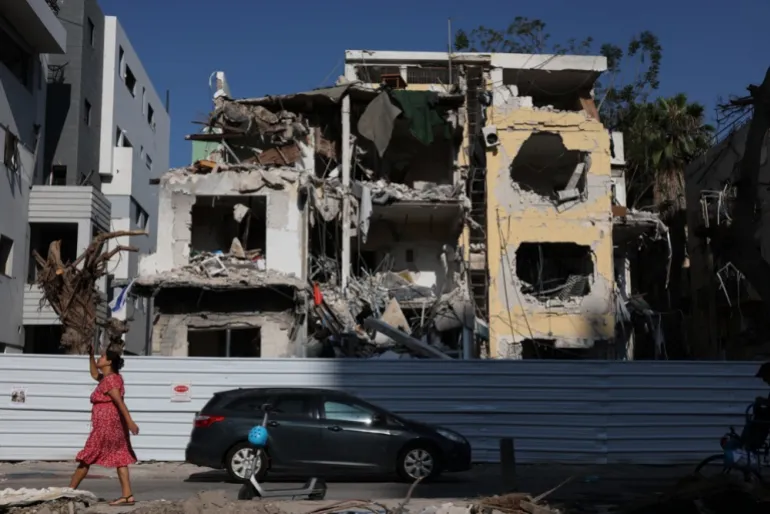
Israel and Iran in a Deadly Standoff
While diplomatic efforts are underway, the violence between Israel and Iran continues to escalate. In the past 24 hours alone, Iran launched a series of missile strikes on Israeli targets, including Herzliya, where the Iranians claimed there was a military base or militarily significant site. Israel’s defense systems intercepted many of these missiles, but some still got through, causing significant damage. At least 24 Israelis have been killed in missile attacks since Friday.
In retaliation, the Israeli military has reportedly destroyed over 200 missile-launching sites across Iran, and the Israeli government claims that Iran’s ability to launch large numbers of missiles is diminishing. According to Israeli officials, the frequency of attacks has been decreasing, with approximately 200 missiles fired on Saturday, 65 on Sunday, and around 30 on Monday.
Despite the reduction in missile launches, the situation remains dire. Explosions over Tel Aviv have caused fires and sparked further tensions. As the conflict rages on, both sides have ramped up their military readiness, and the possibility of a broader regional conflict remains very real.
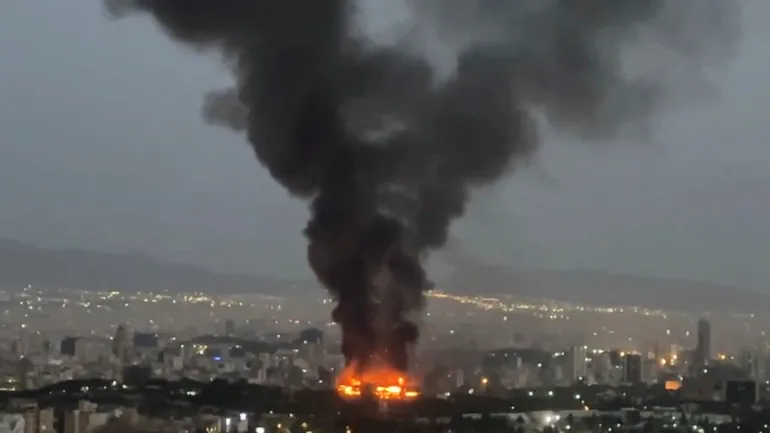
A Divided Israeli Public
While the Israeli government’s military actions have garnered strong support from a significant portion of the population, there are growing concerns about the long-term consequences of the conflict. Political commentator Ori Goldberg explained that while many Israelis support Prime Minister Netanyahu’s approach to confronting Iran, particularly in light of the country’s nuclear ambitions, there is a sense of uncertainty about the overall strategy and the war’s ultimate goal.
Goldberg pointed out that many Israelis have been raised to view Iran as an existential threat to their country, with the public largely united behind the government’s military actions. However, as the conflict drags on, the lack of a clear endgame or exit strategy is becoming more apparent. The war is starting to feel reminiscent of Israel’s previous conflicts, such as the Gaza War, where the lack of a defined objective left citizens questioning the effectiveness of the ongoing operations.
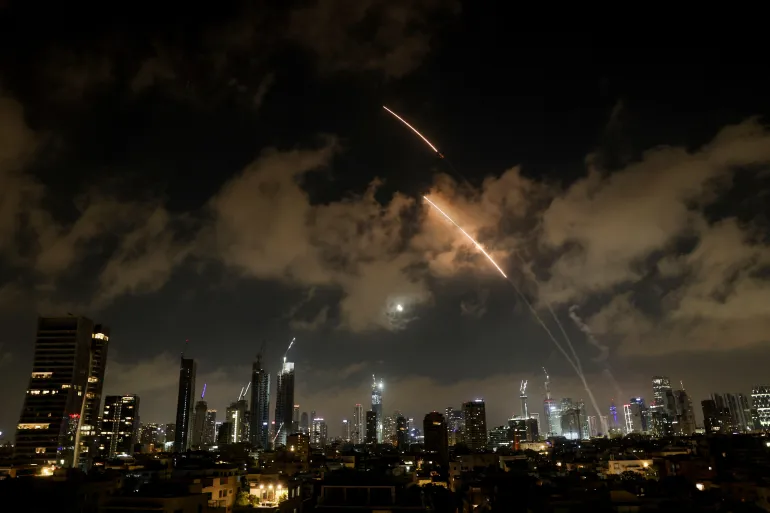
U.S. Embassy in Israel Shuts Amid Rising Tensions
In response to the escalating conflict, the U.S. Embassy in Jerusalem has temporarily closed its doors, with staff advised to shelter in place. The U.S. State Department issued a statement confirming that the embassy would remain closed until Friday, with all U.S. government employees and their families required to remain in their residences. Additionally, commercial and charter flights from Ben Gurion Airport have been suspended, and the situation at seaports is similarly disrupted. While the U.S. government has not announced plans to evacuate private citizens from Israel, the embassy will continue to provide updates if any evacuation measures are needed.
This closure reflects the severity of the conflict, as Israel and Iran continue to exchange attacks, and the safety of diplomatic personnel becomes a primary concern.
Global Economic Fallout
As the violence between Israel and Iran intensifies, concerns are mounting over the potential impact on the global economy. Both nations are crucial players in the Middle East, and the ongoing conflict could have far-reaching consequences for oil markets, trade, and regional stability. With Iran’s ability to disrupt shipping lanes and influence global oil prices, any prolonged conflict could strain economies around the world.
Global markets are already feeling the effects of the instability in the region, and the longer the conflict continues, the more pronounced these economic consequences will become. Governments and international organizations are closely monitoring the situation, and many are urging a swift return to diplomatic negotiations to prevent further economic damage.
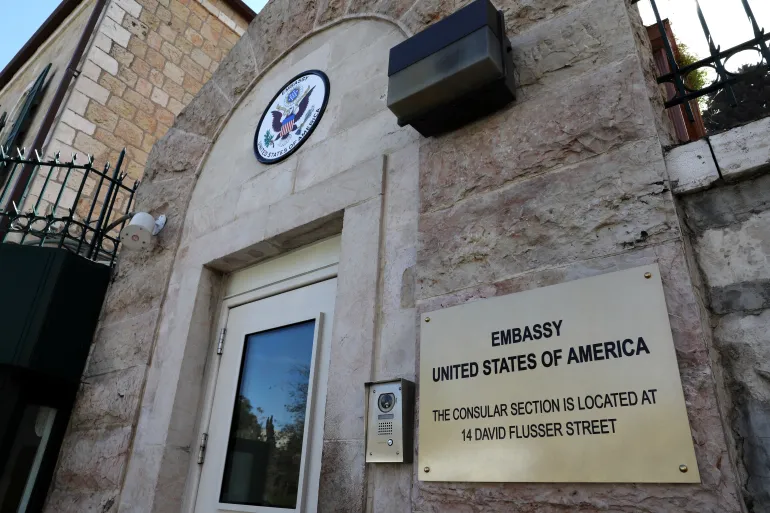
The International Response
The international community has responded with growing concern, with many world leaders calling for a cessation of hostilities and a return to negotiations. The United Nations has called for an immediate ceasefire and urged all parties to engage in dialogue. However, with both Israel and Iran firmly entrenched in their positions, it remains to be seen whether diplomatic efforts can halt the bloodshed.
The French president’s call for the U.S. to take a leadership role in restarting diplomacy comes at a crucial moment. Macron’s approach underscores the belief that a diplomatic resolution is the only viable solution to the crisis. However, with tensions running high and both sides unwilling to back down, achieving peace may prove to be an incredibly difficult task.
Conclusion
The conflict between Israel and Iran is a complex and dangerous situation that threatens to spill over into a broader regional war. As military strikes continue, the international community is left grappling with how best to prevent further escalation. French President Emmanuel Macron’s call for the U.S. to reassert its diplomatic leadership is a timely reminder that peace is achievable only through dialogue, not military force. As the world watches closely, the hope remains that global diplomacy will prevail, bringing an end to the violence and preventing a deeper catastrophe.
The future of the Middle East, and by extension, global stability, hinges on the ability of world leaders to overcome differences and forge a path toward peace. Whether this moment can be seized or whether the region will descend into further conflict remains to be seen.
Author Profile
- Syed Tahir Abbas is a Master's student at Southwest University, Chongqing, specializing in international relations and sustainable development. His research focuses on U.S.-China diplomacy, global geopolitics, and the role of education in shaping international policies. Syed has contributed to academic discussions on political dynamics, economic growth, and sustainable energy, aiming to offer fresh insights into global affairs.
Latest entries
 GeopoliticsAugust 23, 2025Previewing the White House Visit of South Korean President Lee Jae Myung
GeopoliticsAugust 23, 2025Previewing the White House Visit of South Korean President Lee Jae Myung Middle East ConflictJuly 22, 2025Israel’s Deadly Attacks on Gaza: A Dire Humanitarian Crisis and International Calls for a Truce
Middle East ConflictJuly 22, 2025Israel’s Deadly Attacks on Gaza: A Dire Humanitarian Crisis and International Calls for a Truce Middle East & North AfricaJuly 20, 2025Israel Targets Damascus Amid Rising Tensions in Syria
Middle East & North AfricaJuly 20, 2025Israel Targets Damascus Amid Rising Tensions in Syria Middle East AffairsJuly 14, 2025An Open Letter from Gaza’s University Presidents: Resisting Scholasticide Through Education
Middle East AffairsJuly 14, 2025An Open Letter from Gaza’s University Presidents: Resisting Scholasticide Through Education

